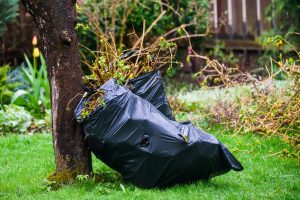When it comes to house clearances, whether it’s the daunting task of downsizing, handling the belongings of a departed relative, or simply decluttering to embrace a more minimalist lifestyle, the process can often seem overwhelming.
Not only does it involve the physical labour of sorting through years, sometimes decades, of accumulated possessions, but it also poses a significant challenge in deciding what to do with all these items. Amidst this, the importance of recycling cannot be overstated.
By choosing to recycle during house clearances, we not only lighten the load on our planet but also contribute to a cycle of sustainability that benefits both the environment and society at large.
In an age where environmental awareness is more critical than ever, the emphasis on recycling should be woven into every aspect of our lives, including the process of clearing out our homes.
Unfortunately, too many usable materials end up in landfills, contributing to pollution and waste management issues that could easily be mitigated with a more conscientious approach to disposal.
House clearances offer a unique opportunity to make significant environmental contributions through the simple act of recycling.
At SRW Services, we have a unique and effective recycling service.
The Impact of Waste on the Environment
Year after year, households across the country find themselves clearing out unwanted items, yet few stop to consider the journey these items take once they leave our homes.
The stark reality is that most of these discarded items contribute to the growing problem of landfill overuse.
Landfills, not only a blight on the landscape but also a significant source of pollution, release harmful chemicals and greenhouse gases that contribute to climate change.
Furthermore, producing new items to replace those carelessly thrown away consumes vast amounts of energy and resources, exacerbating environmental degradation.
The role of recycling in mitigating these environmental impacts cannot be overstated.
By ensuring that materials such as plastics, metals, and textiles are properly recycled, we can dramatically reduce the need for new raw materials, conserving energy and reducing carbon emissions in the process.
Recycling helps to close the loop, creating a circular economy where waste is minimised, and resources are used more efficiently.
This not only helps in conserving the environment but also promotes a sustainable model of consumption that challenges the throwaway culture prevalent in today’s society.
Benefits of Recycling During House Clearances
Recycling during house clearances goes beyond environmental stewardship; it presents economic advantages as well. By diverting items from the waste stream, individuals and communities can save on disposal fees and support the recycling and second-hand markets.
This economic incentive, coupled with the environmental benefits, creates a compelling case for prioritising recycling. Additionally, the act of recycling often unearths items that can be donated to charity, thereby extending their lifecycle and benefiting those in need.
Thus, the process of clearing out a house can transform from a task of disposal to one of contribution and support to both the environment and community.
Moreover, the environmental benefits of recycling are immense and multifaceted. It significantly reduces the pressure on landfills, minimises pollution, conserves natural resources, and saves energy.
For example, recycling metals means less mining for new ores, recycling paper preserves forests and the wildlife they support, and recycling plastics reduces petroleum use. Each action taken to recycle during a house clearance contributes to a larger, global effort to combat environmental degradation and promote sustainability.
This holistic approach not only addresses the immediate impact of waste but also fosters a culture of responsibility towards the planet that will benefit future generations.
How to Implement Recycling in House Clearances
Implementing recycling strategies during house clearances begins with meticulous planning.
Sorting items into distinct categories — recyclable, non-recyclable, donate, sell, and dispose — can streamline the process and ensure nothing that could be recycled or reused goes to waste.
This requires a bit of research to understand local recycling guidelines and the materials accepted at recycling centres. Additionally, identifying items that are in good condition for donation can greatly reduce the volume of waste.
Charitable organisations, thrift stores, and community groups often welcome donations of furniture, clothing, and other household items, providing them with a second life and a new home.
Understanding what can and cannot be recycled is crucial. Electronics, batteries, certain plastics, textiles, and metals often have specific recycling protocols due to their hazardous components or special handling requirements.
Local authorities and waste management companies can guide how to dispose of these items responsibly.
Furthermore, many communities offer services for the collection of specific recyclable materials, making it easier for individuals to participate in recycling efforts.
By choosing eco-friendly waste disposal companies that prioritise recycling and the responsible handling of waste, homeowners can ensure that their house clearance not only tidies their space but also contributes positively to environmental conservation.
Conclusion
As we navigate the often overwhelming task of house clearances, it’s vital to remember the significant impact our decisions can have on the environment.
Recycling, a crucial component of the waste reduction hierarchy, offers a pathway to mitigating this impact by diverting items from landfills, conserving resources, and reducing pollution.
The benefits of incorporating recycling into the process of clearing out our homes extend far beyond the immediate environmental gains.
They reflect a commitment to a sustainable future, where the principles of reuse and recycling are integrated into every aspect of our lives.
Encouraging a broader adoption of recycling practices during house clearances requires a shift in perspective, from viewing unwanted items as waste to seeing them as resources that can be given new life.
This mindset, coupled with practical steps towards recycling, can transform the way we approach house clearances.
By doing so, we not only contribute to the health of our planet but also instil a sense of responsibility and stewardship that will inspire others to follow suit.
Let us embrace recycling not just as a choice, but as a duty to ourselves, our communities, and the world we all share.



